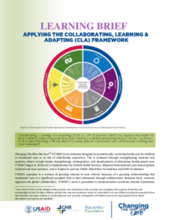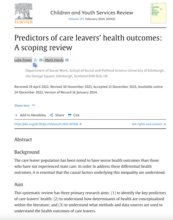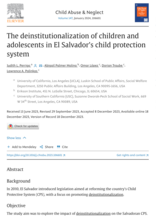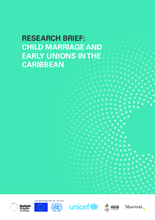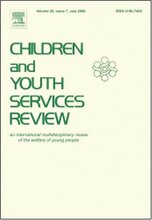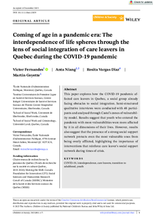This page contains documents and other resources related to children's care in the Americas. Browse resources by region, country, or category.
Displaying 181 - 190 of 3191
Since care reform is a long and complex process, requiring collaboration between many diverse actors, with different change pathways in diverse contexts, the Changing the Way We Care initiative set out to learn from different demonstration countries, build national and regional knowledge, and reinforce global momentum for family care. This learning brief describes some of that journey.
This brief shares how the initiative used CLA related to the social service workforce strengthening and case management.
Since 2021, migrant children have been traveling alone to the United States in record numbers: Nearly 400,000 children have crossed the southern border by themselves, most of them fleeing extreme poverty.
This systematic review contained studies that were mostly based in the U.S. and had three primary research aims: (1) to identify the key predictors of care leavers’ health; (2) to understand how determinants of health are conceptualised within the literature; and (3) to understand what methods and data sources are used to understand the health outcomes of care leavers.
The purpose of this study was to explore the impact of deinstitutionalization on the Salvadoran Child Protection System.
This research brief summarizes what is already known about child marriage and early unions (CMEUs) in the Caribbean, complemented by the findings of research commissioned by UNICEF in the framework of the Spotlight Initiative Caribbean Regional Programme and conducted in six Caribbean countries: Antigua and Barbuda, Belize, Guyana, Haiti, Suriname and Trinidad and Tobago.
This longitudinal study evaluates the effectiveness of BLINDED intervention, an intervention that utilizes family search and engagement practices to place children who enter foster care in kinship placements as quickly as possible in the U.S.
This is a systematic review of literature published from 2002 to 2022 to assess the differences in outcomes of children and youth who were adopted out of foster care compared to children and youth in foster care (CYFC) who were in other permanency placements (reunified, aged out, long-term foster care). The review yielded twelve (N = 12) studies from Sweden, the United Kingdom, and the United States.
This paper explores how the COVID-19 pandemic affected care leavers in Quebec, a social group already facing obstacles to social integration.
Survivors of institutions run by Catholic diocese recall litany of sexual abuse as bankruptcy process keeps documents hidden
Native American mothers whose children were separated from them – either through child removal for assimilation into residential boarding schools or through coerced adoption – experience the kind of grief no parent should ever feel. Yet theirs is a loss that is ongoing, with no sense of meaning or closure.


